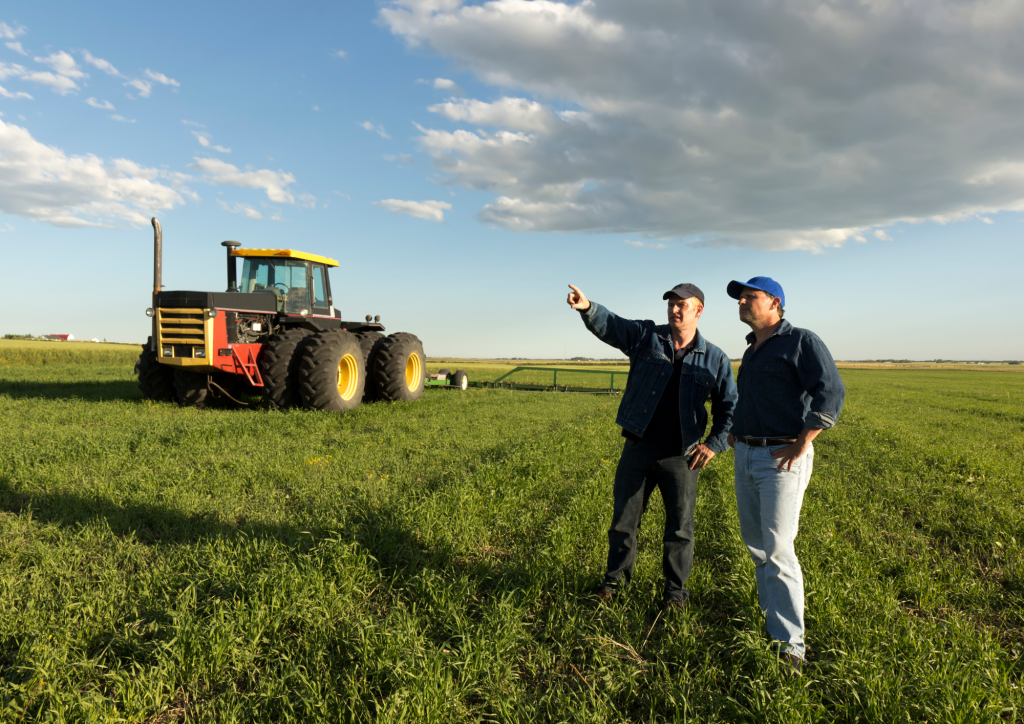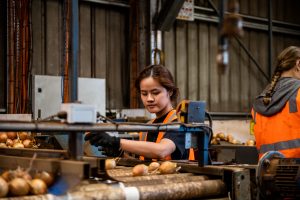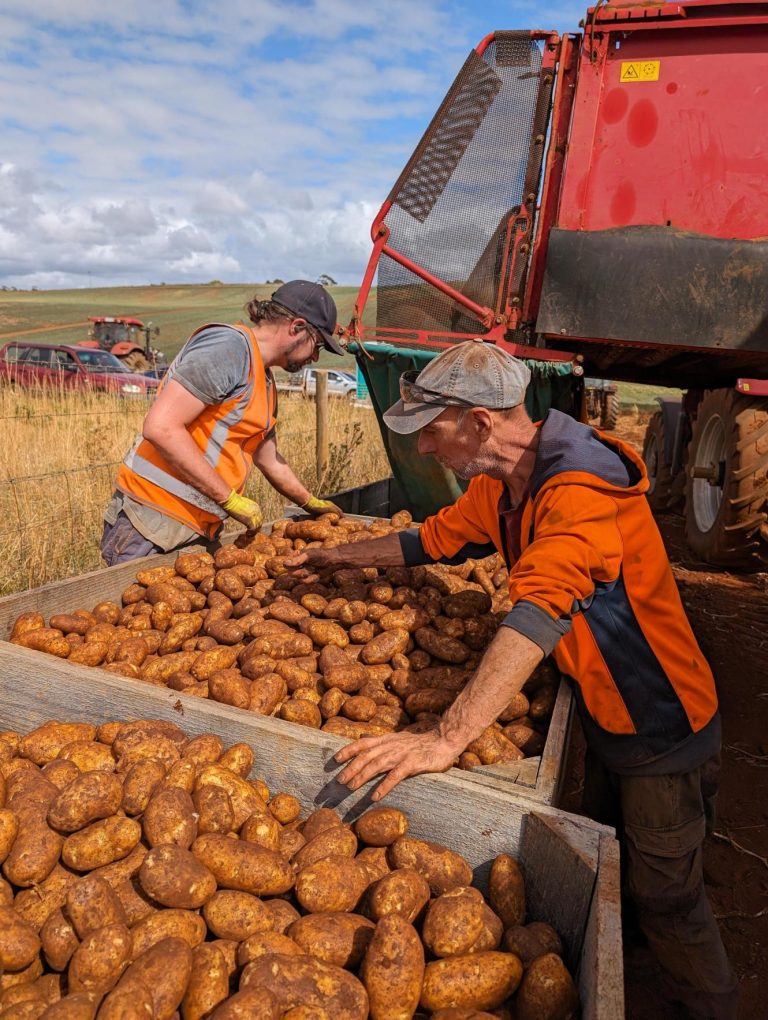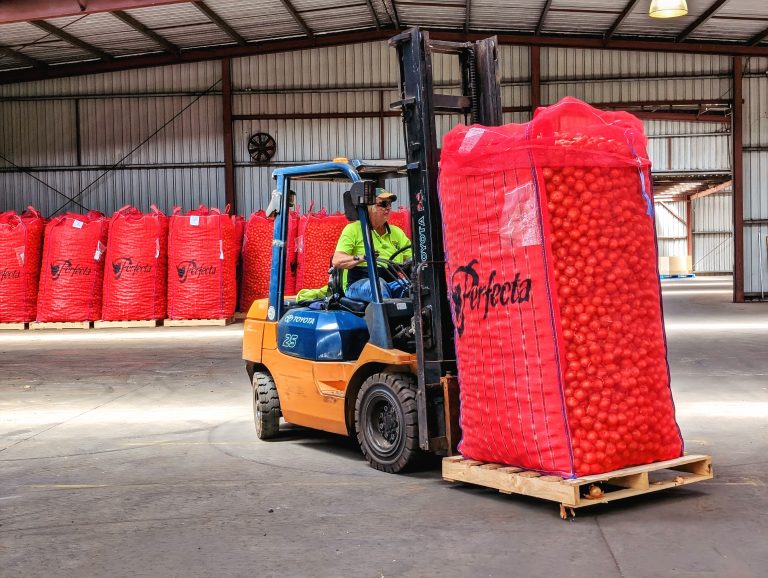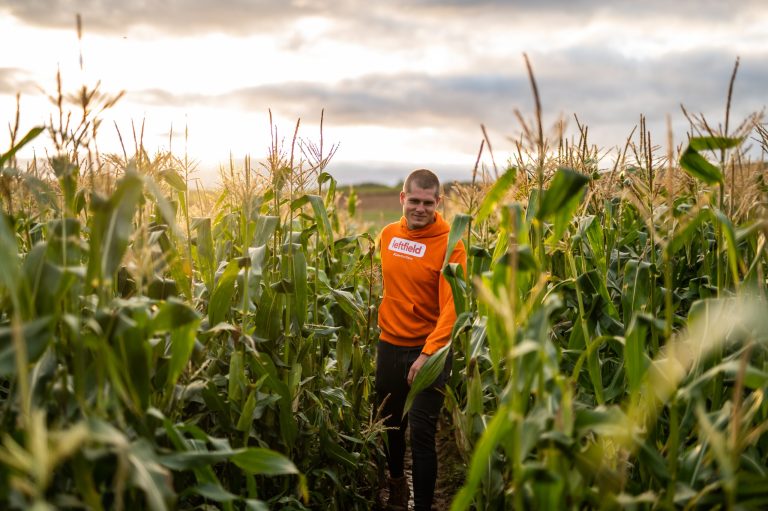The agricultural sector in Tasmania has experienced significant transformations over the past decade. Between 2013 and 2023, innovations in technology, management practices, and sustainability initiatives have led to considerable improvements in farming productivity. In this article, we will examine Tasmanian case studies and statistics to compare productivity levels in farming between these two time periods and explore the factors that have contributed to the changes.
Technological Advancements
Precision Agriculture
In Tasmania, precision agriculture has emerged as a game-changer in farming productivity over the past decade. An example of this can be seen at Houston’s Farm, a family-owned salad producer based in Southern Tasmania. They have adopted precision agriculture technologies, including GPS-guided tractors and irrigation systems, to improve their farming practices. By integrating these advanced technologies, Houston’s Farm has been able to optimise their inputs, reduce waste, and maximise yield, leading to increased productivity and sustainability in their operations.
You can learn more about Houston’s Farm and their use of precision agriculture technologies by visiting their website here.
Robotics and Automation
In 2013, agricultural robotics and automation were mainly limited to large-scale commercial operations in Tasmania. Over the past decade, these technologies have become more accessible and affordable, making them available to small and medium-sized farms as well. For instance, Reid Fruits, a cherry farm in Tasmania, implemented a high-tech optical sorter in their operation. This sorter uses advanced technology to grade cherries based on size, colour, and quality. By adopting this automated system, Reid Fruits significantly reduced labour costs and improved the efficiency of their grading process, ultimately leading to increased productivity.
You can learn more about Reid Fruits and their use of automation technologies by visiting their website.
Genetically Modified Organisms (GMOs)
Although GMOs are currently not permitted for commercial cultivation in Tasmania, research on the potential benefits of GMOs for Tasmanian agriculture has continued. By 2023, newer GMOs with improved traits have emerged, and discussions around the possibility of lifting the GMO moratorium have intensified, with a focus on how these crops could increase productivity while maintaining Tasmania’s clean, green reputation.
Improved Management Practices
Data-Driven Farming
Data-driven farming has become a key aspect of agricultural management in Tasmania over the past decade. In 2013, farmers were only beginning to explore the potential of data to improve their decision-making processes. By 2023, data-driven farming has allowed Tasmanian farmers to analyse soil health, weather patterns, and crop health more accurately, leading to more informed decisions and higher productivity.
Many Tasmanian farms have successfully adopted data-driven farming practices by using sensors and data analysis tools to monitor soil moisture, nutrient levels, and weather conditions. By optimising irrigation and fertilisation schedules based on the collected data, these farms have been able to significantly increase crop yield. Some farms have reported an estimated 15% improvement in productivity between 2018 and 2023, showcasing the potential of data-driven farming in the region.
Integrated Pest Management
Integrated pest management (IPM) has become an essential practice in sustainable agriculture in Tasmania since 2013. IPM focuses on using a combination of biological, cultural, and chemical methods to manage pests, minimising the use of harmful chemicals. By 2023, the adoption of IPM has increased, leading to reduced crop losses and improved productivity.
One notable example of IPM implementation in Tasmania is Westerway Raspberry Farm in the Derwent Valley. The farm has adopted a range of IPM strategies, including the use of beneficial insects, crop rotation, and targeted pesticide application to minimise pest damage and reduce the reliance on chemical treatments. As a result, Westerway Raspberry Farm has seen a decrease in crop losses and an increase in overall productivity, contributing to the farm‘s ongoing success.
Sustainable Soil Management
Soil health is crucial for farming productivity, and sustainable soil management practices have gained significant traction in Tasmania since 2013. These practices include crop rotation, cover cropping, and conservation tillage. By 2023, these methods have contributed to better soil structure, increased nutrient availability, and improved water retention, ultimately leading to higher crop yields.
Across Tasmania, numerous farms have embraced sustainable soil management practices to improve soil health and boost productivity. By adopting techniques such as crop rotation, cover cropping, and reduced tillage, farmers have experienced improvements in soil health, increased organic matter, and enhanced overall productivity. The increasing adoption of sustainable soil management strategies in Tasmania demonstrates the importance of focusing on soil health to achieve higher agricultural productivity in the region.
Tasmanian Trends and Policies
Several trends and policies have influenced farming productivity in Tasmania between 2013 and 2023. Climate change, with its extreme weather events and shifting precipitation patterns, has posed challenges to agricultural productivity. A real-life example of the impact of climate change on Tasmanian agriculture is the 2016 floods that caused significant damage to farmland and infrastructure, leading to a reduction in crop yield and livestock loss.
Nevertheless, the adoption of climate-smart agricultural practices, such as the use of drought-resistant crop varieties, has helped Tasmanian farmers mitigate these challenges. This adaptation can be found in the Tasmanian Poppy Industry, where growers have embraced more efficient irrigation systems and better agronomic practices to adapt to changing climate conditions.
Furthermore, Tasmanian government policies and incentives have played a significant role in promoting sustainable farming practices and technologies. For example, the Tasmanian Government’s Fert$mart program, developed in partnership with the Tasmanian Institute of Agriculture (TIA), helps farmers improve nutrient management to optimize productivity while minimising environmental impacts. This program has contributed to Tasmanian farmers transitioning towards more productive and environmentally friendly methods.
Addressing Cultural Challenges for Enhanced Productivity on Tasmanian Farms
While technological advancements, improved management practices, and supportive policies have significantly contributed to increased productivity, another essential aspect to consider is the cultural environment on farms. Creating a positive work culture and fostering a sense of synergy between growers and workers is crucial for further enhancing productivity in Tasmanian agriculture.
Synergy and Common Goals
Enhancing farm productivity can be achieved by fostering a culture where growers and workers collaborate effectively and work towards common goals. Engaging all team members in the farm’s mission and ensuring everyone understands their role in achieving the objectives helps create an environment of collaboration and shared responsibility. It has been observed that farms that prioritise teamwork and align with farm goals tend to experience increased productivity. Therefore, it is essential to focus on building a positive and cooperative work environment to improve overall farm performance.
Personal Investment in the Farm
Another key factor in enhancing productivity is ensuring that both growers and workers are personally invested in the farm. This can be achieved through various strategies, such as offering training and development opportunities, providing incentives for high performance, and giving workers a sense of ownership in the farm‘s success. One example of this approach can be seen in some Tasmanian farms, where employee-focused initiatives have been implemented. These initiatives include fostering a positive work environment, providing opportunities for skill development, and recognising employees’ contributions. As a result, these farms have successfully improved worker satisfaction, retention, and overall productivity.
Eliminating Negative Influences
Lastly, addressing and eliminating negative influences, such as uncooperative or disruptive individuals, is vital for maintaining a positive and productive farm culture. While these individuals usually fall into the top performers due to their perceived confidence, their negative attitudes can have a detrimental impact on overall productivity and morale.
Addressing and eliminating negative influences, such as uncooperative or disruptive individuals, is vital for maintaining a positive and productive farm culture. A great example from Tasmania is Left Field, an agricultural consultancy based in Devonport. In 2021, the company introduced a strict selection criteria into their recruitment process to ensure the selection of employees who positively contribute to the workplace environment. They also implemented a zero-tolerance policy for negative behaviour, dealing with any issues swiftly and effectively.
As a result of these initiatives, Left Field experienced a remarkable 400% increase in client satisfaction, leading to significantly improved productivity and revenue across all their client’s farms. The success of Left Field’s approach demonstrates the importance of cultivating a positive work environment and the benefits it can bring to both employees and the overall business. This example also highlights the potential impact of addressing negative influences in the workplace and the value of investing in a positive work culture for Tasmanian farms and businesses in the agricultural sector.
In addition to the technological, managerial, and policy aspects of farming productivity, addressing the cultural environment on Tasmanian farms is crucial for further progress. By promoting synergy, personal investment, and a positive work culture, Tasmanian farms can unlock their full potential and continue to enhance productivity in the coming years.

